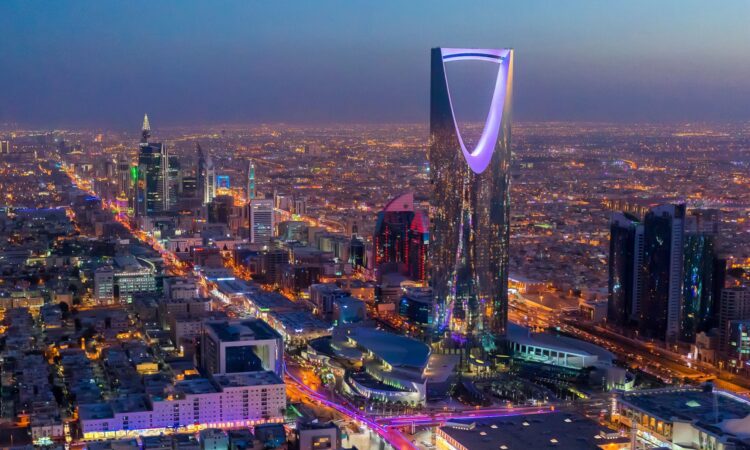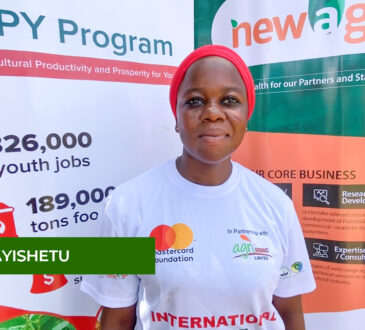Bridging Continents: The impact of Saudi Arabia’s Vision 2030 on economic development in specific African countries

Saudi Arabia’s Vision 2030, launched in 2016, is a transformative strategy designed to reduce the Kingdom’s reliance on oil and diversify its economy. While its core objective is domestic reform, the initiative also seeks to expand Saudi Arabia’s global economic and strategic reach, with Africa emerging as a pivotal partner. This evolving relationship has catalyzed economic growth, fostered development, and strengthened ties between Saudi Arabia and various African nations, including Kenya, Ethiopia, Ghana, Nigeria, Zambia, Djibouti, Egypt, Morocco, and Sudan.
Vision 2030 and Its Strategic Partnership with Africa
Africa’s abundant natural resources, growing economies, and young population make it an attractive partner for Saudi Arabia. In return, African nations gain access to Saudi capital, expertise, and technology, fostering mutually beneficial development. Vision 2030 emphasizes inclusivity, sustainability, and aligning with long-term aspirations such as the African Union’s Agenda 2063, moving beyond traditional trade models to equitable and sustainable partnerships.
Historical Ties and New Collaborations
Saudi Arabia and Africa share deep-rooted connections in trade, religion, and cultural exchanges, historically linked by the Red Sea. Vision 2030 elevates these ties into strategic partnerships, focusing on key sectors:
Agriculture and Food Security: Saudi Arabia’s investments in African agriculture aim to secure food supplies and promote sustainability. In Sudan and Ethiopia, partnerships involve cultivating farmlands and enhancing food production capacity. This fosters food security for Saudi Arabia while transferring agricultural expertise, increasing local employment, and contributing to rural development in African nations.
Energy and Infrastructure: Investments in renewable energy and transport infrastructure address Africa’s power deficits and connectivity challenges. Projects in Morocco and Kenya include solar and wind farms, generating clean energy and jobs. In Djibouti and Ethiopia, Saudi-backed port and road expansions improve trade routes, linking landlocked countries to global markets and fueling economic growth.
Trade and Market Access: Saudi Arabia’s engagement enhances African trade by boosting exports of agricultural goods, raw materials, and halal-certified products. Countries like Kenya and Ghana have increased exports to Saudi markets. Reduced tariffs, streamlined customs processes, and bilateral agreements facilitate smoother trade flows and open new market opportunities for African goods.
Sectoral Focus Areas
Investment: Saudi Arabia’s Public Investment Fund (PIF) and the Saudi Fund for Development channel resources into Africa’s agriculture, energy, healthcare, and technology sectors. Partnerships in Sudanese and Ethiopian agriculture secure Saudi food supplies and promote local growth. Renewable energy initiatives in Morocco and Kenya align with sustainability goals but require overcoming governance and regulatory challenges.
Infrastructure: Investments in roads, ports, and power grids facilitate trade and industrialization across Africa. Projects like Djibouti’s port expansion and Ethiopian road networks enhance market access and economic integration. Community involvement and sustainable practices are essential for long-term impact.
Trade: Trade relations are expanding, with Kenya, Ghana, and other nations benefiting from Saudi demand for halal products and raw materials. Addressing trade imbalances through enhanced production capacity and quality standards is crucial for sustainable growth.
Cultural Exchange: Educational scholarships, tourism initiatives, and religious pilgrimages strengthen people-to-people connections. Programs supporting African students in Saudi universities and enhanced pilgrimage experiences deepen ties while promoting knowledge exchange.
Country-Specific Impacts
- Ethiopia: Saudi Arabia’s investments in Ethiopia focus on agriculture and renewable energy. Agricultural initiatives boost food production, improving local farming techniques and export capacity. Renewable energy collaborations, including solar and hydropower projects, align with sustainability goals. This partnership addresses food security and energy deficits while fostering job creation and technological transfer.
- Nigeria: As Africa’s largest economy, Nigeria benefits from Saudi Arabia’s investments in renewable energy and education. Joint ventures expand solar and wind power capacity, reducing oil dependency. Educational scholarships and infrastructure projects enhance knowledge transfer and skills development, supporting Nigeria’s industrialization. Security challenges require continuous risk mitigation for optimal outcomes.
- Kenya: Kenya’s growing economy gains from enhanced trade and tourism links with Saudi Arabia. Increased exports of halal-certified meat, tea, and coffee boost its agricultural sector. Saudi investments in hospitality improve tourism infrastructure. Despite trade imbalances, joint initiatives and improved market access strengthen Kenya’s economic resilience and bilateral relations.
- Ghana: Saudi-backed technology and vocational training initiatives drive innovation and workforce development in Ghana. Investments in fintech and e-governance enhance digital transformation. Vocational centers equip youth with future-ready skills, supporting industrialization and entrepreneurship. Addressing regulatory and infrastructure gaps will further accelerate economic modernization and Saudi-Ghana cooperation.
- Zambia: Zambia’s mining sector attracts significant Saudi investment, focusing on copper and strategic minerals. Collaborative projects modernize mining infrastructure and enhance resource extraction efficiency. This partnership creates jobs, boosts export revenue, and strengthens Zambia’s industrial base, aligning with Saudi Arabia’s demand for essential materials for renewable technologies.
- Djibouti: Trade infrastructure investments in Djibouti, including port expansions, position the country as a key logistics hub. Saudi-backed developments enhance connectivity for landlocked neighbors, facilitating trade across Africa. These projects increase cargo handling capacity, spur GDP growth, and solidify Djibouti’s strategic maritime importance for global commerce.
- Egypt: Saudi Arabia’s investment in Egypt’s Suez Canal Economic Zone under Vision 2030 drives logistics and industrial development. Joint projects in renewable energy and tourism boost economic diversification. Enhanced trade routes and collaborative initiatives make Egypt a vital partner in regional trade integration and sustainable growth.
- Sudan: Humanitarian aid and development efforts in Sudan reflect Saudi Arabia’s commitment to regional stability. Water, sanitation, and healthcare projects improve living conditions, while agricultural collaborations enhance food security. Political instability presents challenges, but sustainable partnerships promote resilience and long-term socio-economic development in Sudan.
- Morocco: Mining, tourism, and real estate investments in Morocco align with Saudi diversification goals. Collaborative initiatives boost mineral resource development, infrastructure, and hospitality. Saudi-backed projects stimulate job creation and economic growth, strengthening bilateral ties and Morocco’s strategic role in North African trade and investment.
- Senegal: Infrastructure development and economic support from Saudi Arabia enhance Senegal’s connectivity and trade capacity. Investments in roads, bridges, and energy projects create jobs and reduce logistical challenges. Saudi private sector engagement bolsters industrial growth, positioning Senegal as a regional economic hub under Vision 2030.
- Somalia: Saudi Arabia’s humanitarian aid and development assistance address critical needs in Somalia. KSrelief provides food security, healthcare, and support for displaced populations. Development projects foster stability and growth, contributing to Somalia’s long-term recovery. Vision 2030’s partnerships strengthen resilience and regional peace through sustainable investments.
Economic and Developmental Implications
Job Creation: Infrastructure projects funded by Saudi Arabia generate direct and indirect employment, stimulating economic activity in construction, logistics, and related sectors.
Access to Capital: Saudi financial support facilitates ambitious development projects, offering low-interest loans and technical assistance that enhance African countries’ implementation capacity.
Export Opportunities: Vision 2030’s diversification creates demand for African goods, boosting exports of agricultural products and raw materials. Investing in quality standards and logistical infrastructure will enhance competitiveness.
Future Prospects and Strategic Alliances
Vision 2030 fosters a long-term Saudi-African alliance, focusing on renewable energy, technology, human capital, and cultural exchanges. Addressing trade imbalances and sustainability will maximize benefits.
Conclusion
Saudi Arabia’s Vision 2030 redefines its relationship with Africa, transforming traditional ties into dynamic, growth-oriented partnerships. By investing in key sectors and fostering sustainable development, this collaboration drives economic diversification and innovation for both regions. Overcoming challenges through shared values and strategic alignment will unlock the full potential of this relationship, creating a prosperous and interconnected future.







